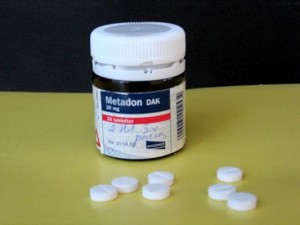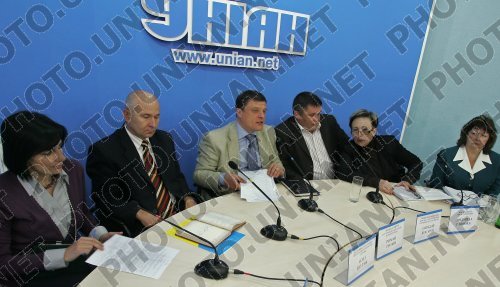 In a recent blog post Pavel Kutsev, a leader of the Ukrainian harm reduction [1]movement, chronicles [2]an escalating battle. Pavel, also a leader of the organization Drop-In Center, writes about a campaign against substitution therapy programs started by certain Ukrainian politicians and non-profit organizations.
In a recent blog post Pavel Kutsev, a leader of the Ukrainian harm reduction [1]movement, chronicles [2]an escalating battle. Pavel, also a leader of the organization Drop-In Center, writes about a campaign against substitution therapy programs started by certain Ukrainian politicians and non-profit organizations.
Until now the war has been limited to banning methadone programs [3]in municipal hospitals of particular cities. But during the past few weeks the anti-methadone campaign has intensified, with new actions such as a press conference against methadone use and police searches of methadone sites. These events were widely reported by Ukrainian mass media and the coverage was not always unbiased.
On September 29 a campaign called “Ukraine without Drugs,” funded by one of the candidates for Ukraine's presidency, held a press conference [4].

"Ukraine without Drugs" press conference, September 29, Kiev
Pavel attended the event and shared his impressions on the Web blog. He wrote [5]:
The press conference was held in UNIAN [6]facilities [one of the biggest news agencies in Ukraine]. There was not a single person with a medical degree among the organizers. Here are some of the quotations from the press releases:
Ukraine continues methadone experiments! They have already reached our kids in prisons! They want to introduce substitution therapy in prisons! On September 29 activists all over Ukraine are starting a hunger strike in front of government buildings to stop the drug genocide….
This is not the first non-profit to have a repressive attitude towards the issue of drug addiction.
We have tried to involve them in a discussion based on real facts and the truth. For instance, after they stated that “while Europe rejects substitution therapy, Ukraine is importing this trash,” we asked, “Would you mind disclosing the sources of your information?” We got a response saying that “all smart people know this.”
Without presenting a single true fact, without providing a single real figure, these “smart people” attempted to send away all “non-journalists” from the press conference. When I introduced myself as a journalist, a publisher and a patient of substitution therapy, I heard people whispering behind my back that I was not adequate. By the way, most of the people who organized this press conference have been trying to establish a partnership with me and my organization.
I have to say that at least one person, a police officer named Mr. Oleg Shutko, was honest. He admitted that some people vitally need methadone and that the solution to the problem is complex. But even these words were misinterpreted by his colleagues who commented that the number of such people was extremely low. When we asked how low this number is, they were not able to respond. (According to the U.N. and the World Health Organization the number of people who need methadone therapy in Ukraine is 40,000.)
Pavel has admitted [7]that often methadone patients do give the authorities real reasons to take action against substitution therapy programs, but closing methadone sites isn't the solution. Pavel says that having local powers work together with the police, as well as forcing medical personnel to strictly follow the procedures of providing substitution therapy medications, would lead to better results.
In addition to the press conference, recently many regional methadone sites have been searched by the police. Afterwards, many media outlets published reports exaggerating the drug seizures made during the searches. Pavel commented [8]on this occurrence:
Have you read this Ternopil newspaper [9]? It says: “A criminal group of doctors was detained and 455 mg of methadone were seized.” Please note, not 0.4 g of methadone (which is just 2-3 average doses) but 455 mg – perhaps they think it looks better.
Pavel stated that media coverage of methadone programs is often full of stigma. He wrote:
Odessa Web resource Timer [10]quoted the chief doctor of the Odessa Narcology Clinic as saying: “If only you knew what our nurses have to go through! They might even be killed in the corridor! Each drug addict is a criminal. These so-called patients sometimes threaten our nurses with death threats, demanding an additional dose…”
In Cherkassy, doctors themselves call methadone patients “doomed.” Can you imagine the atmosphere on this methadone site?